SUMMARY
VENOM: Toxic
PREVALENCE: Very common
ACTIVE PERIOD: Active at night
KEY ID FEATURES: Bright green body and green belly, triangular head, normally positioned to strike
BEHAVIOR: Ambush predator usually stays still and ready to strike, will bite readily with fast strikes
SIZE: Small/Medium - 40-60cm (males), 60-90cm (females)
IUCN: LC - Least Concerned
OTHER: Can be mistaken with Greater Green Snake
QUICK ASSESSMENT 0-10
VENOM REVIEW*
COMPOSITION: Procoagulants, Haemorrhagins (possibly present), Nephrotoxins (likely not present), Necrotoxins (likely not present).
LOCAL EFFECTS: Serious envenomation possible, potentially lethal, local pain, swelling, bruising, blistering, minimal local necrosis.
GENERAL EFFECTS: Nausea, headache vomiting, general pain, dizziness, diarrhoea, collapse and/or convulsions, moderate to sever coagulopathy + haemorrhagic effects, possible renal damage, possible shock.
TREATMENT: Antivenom.
*INFORMATION ON VENOM OBTAINED FROM WWW.TOXINOLOGY.COM
GALLERY
IMPORTANT: Many snakes have significant variance in coloration and pattern even within the same species. There can also be extreme differences in appearance from juveniles to adults so it is important to never assume you have properly identified a snake.
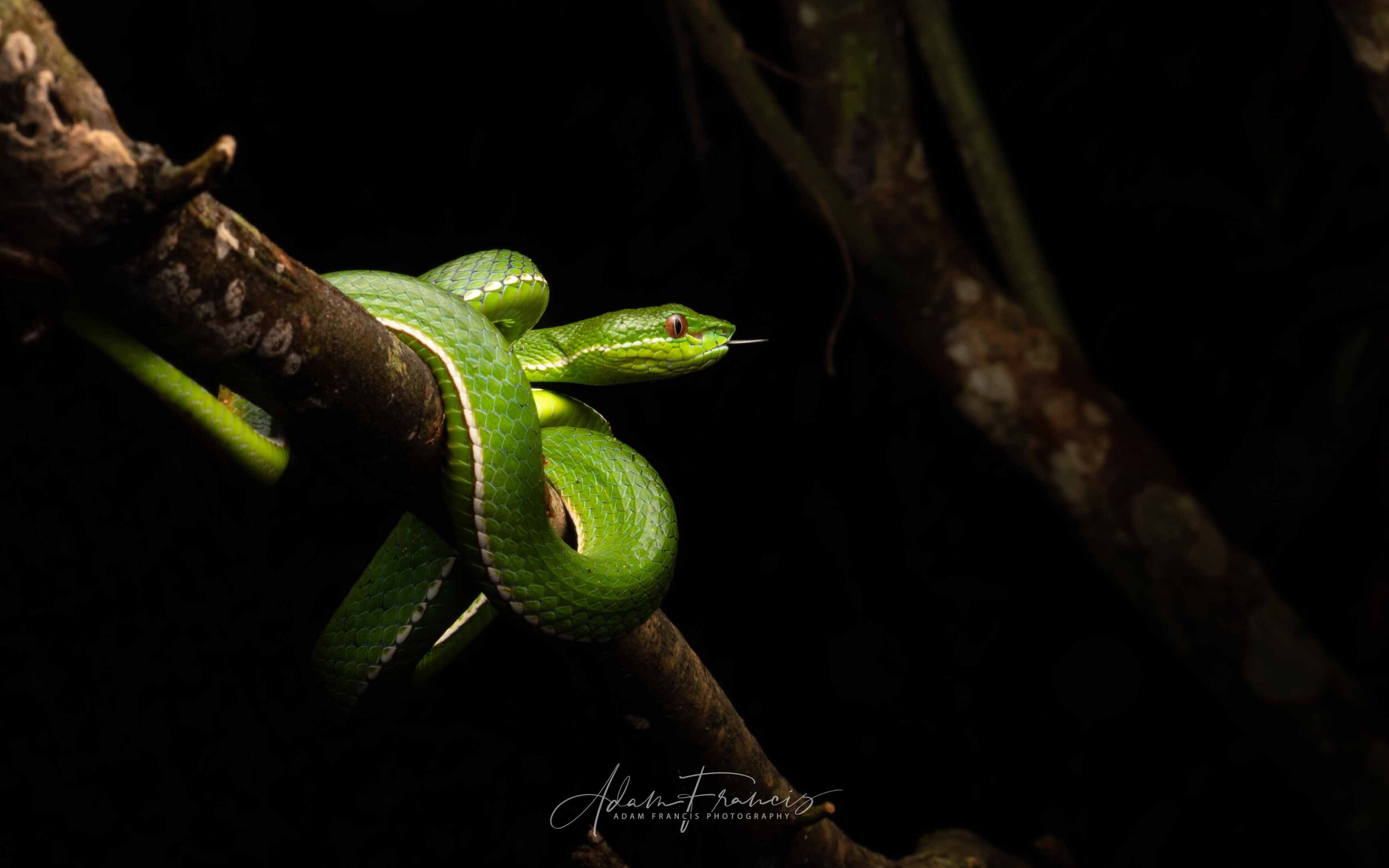
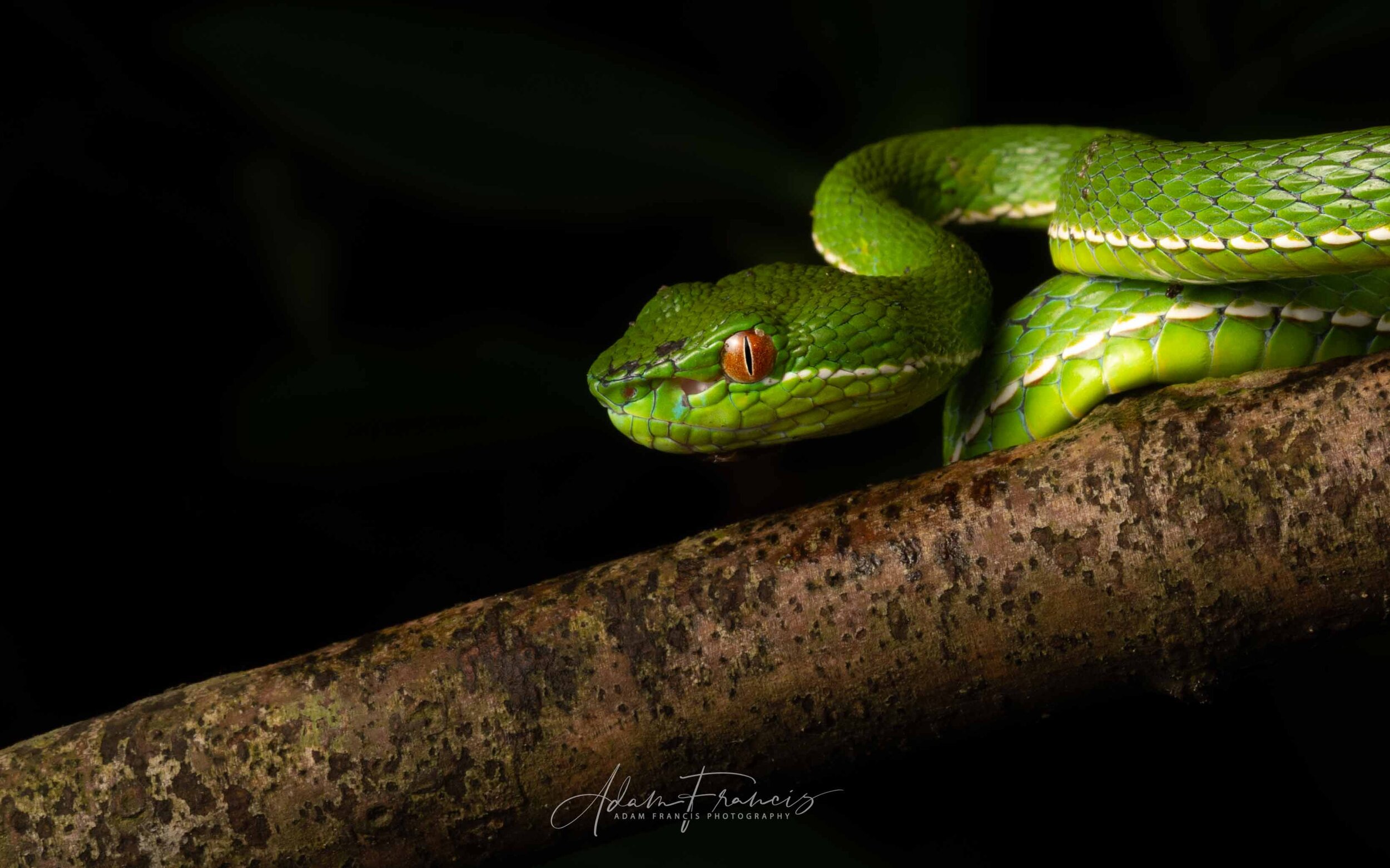
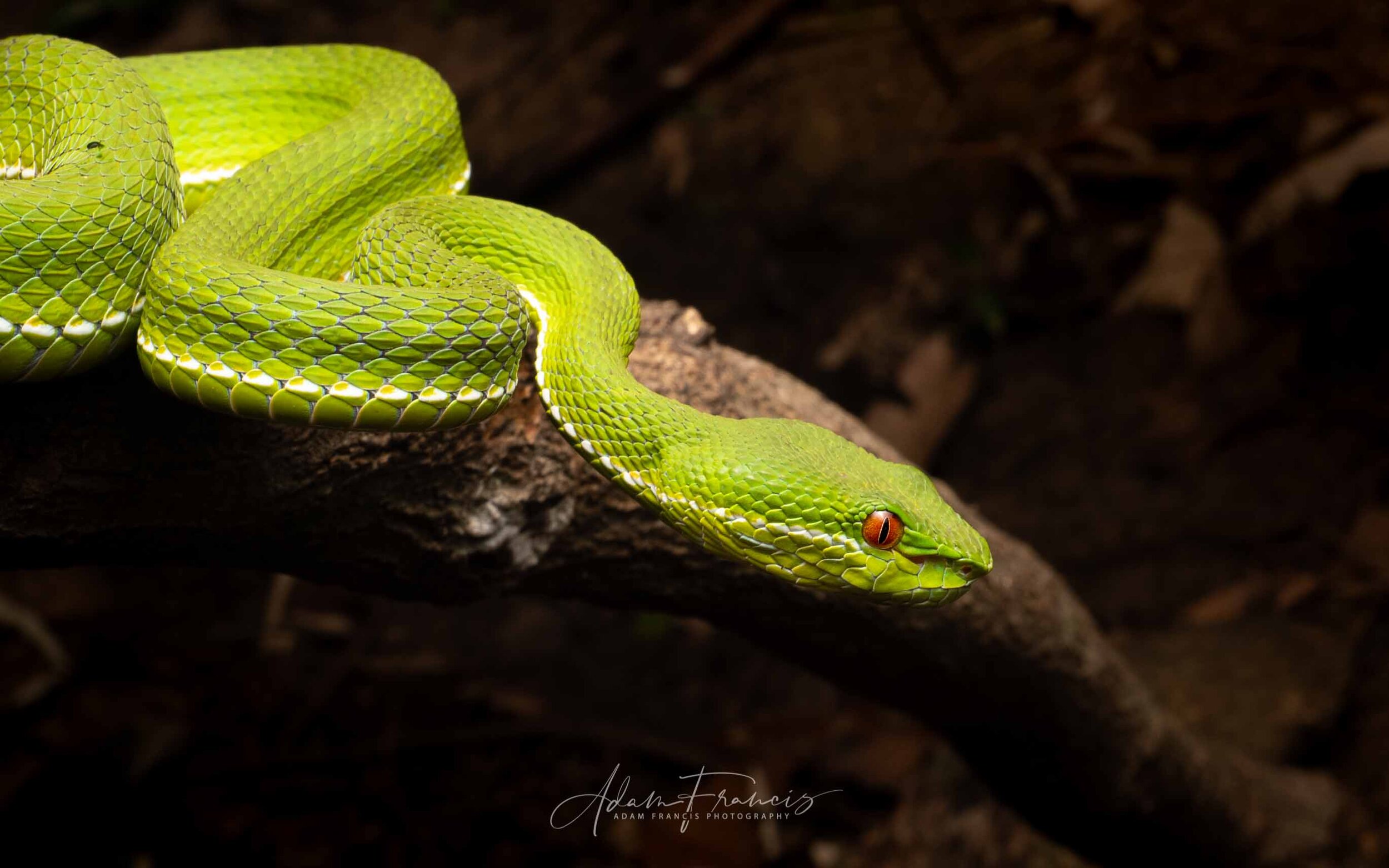
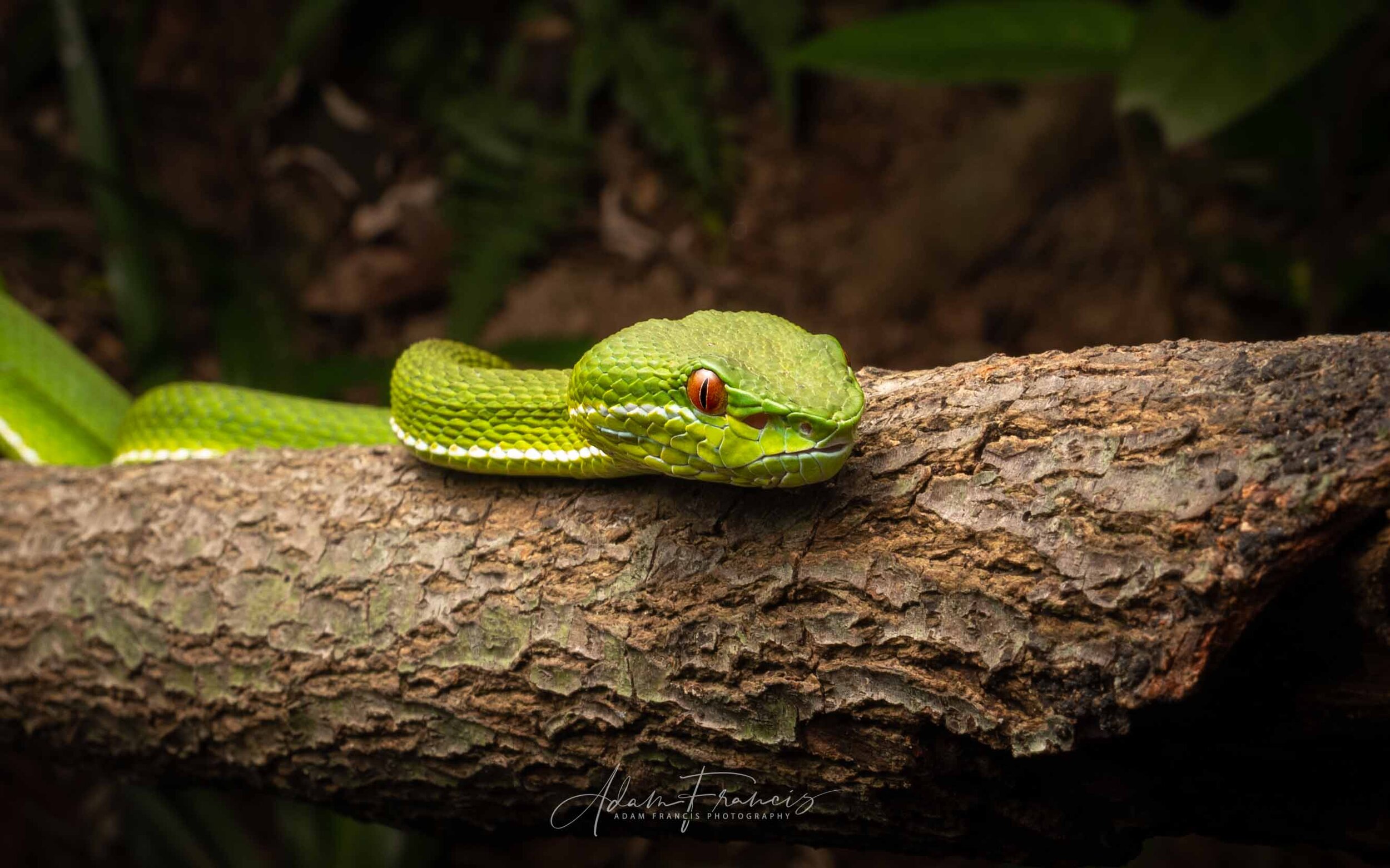
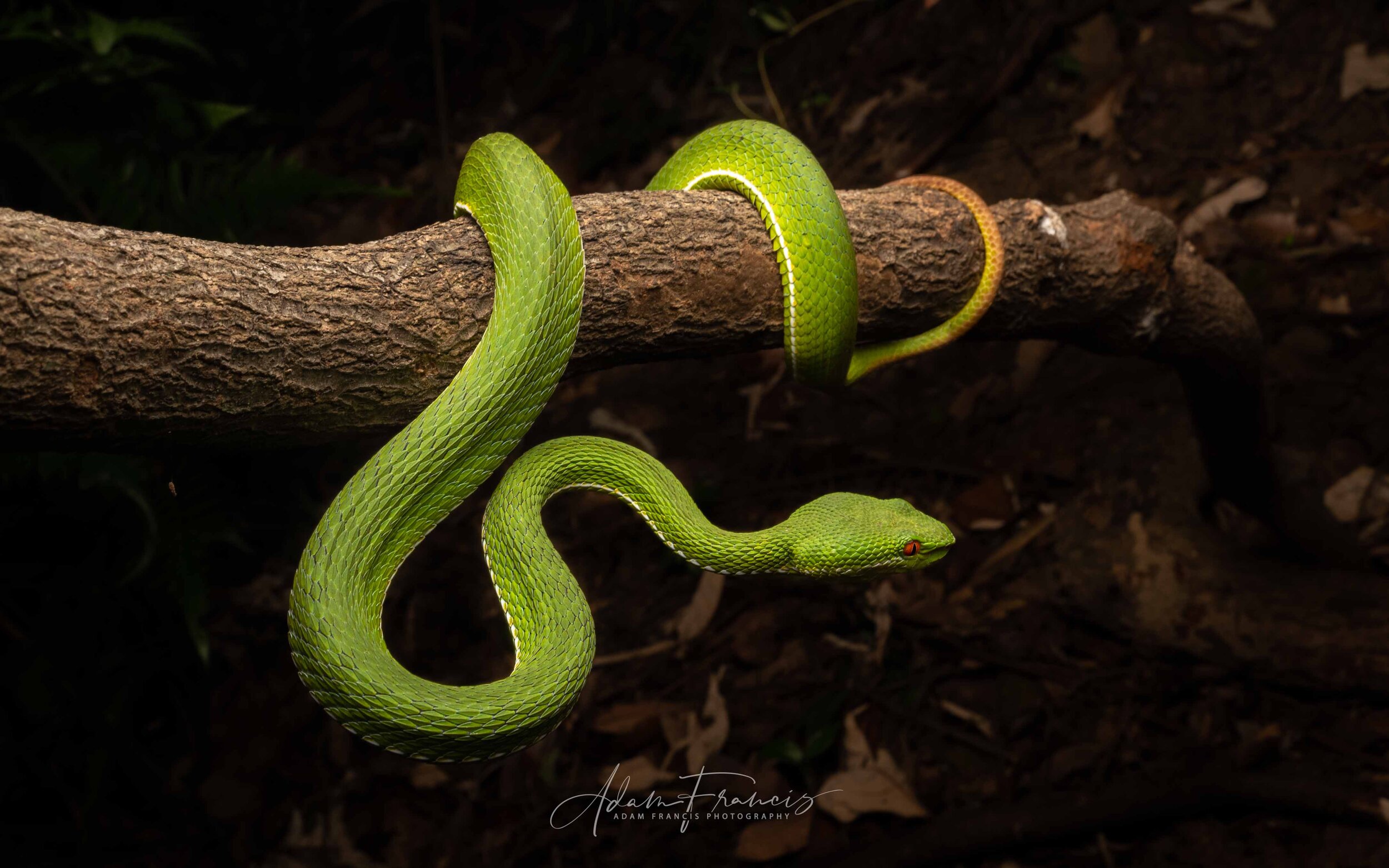
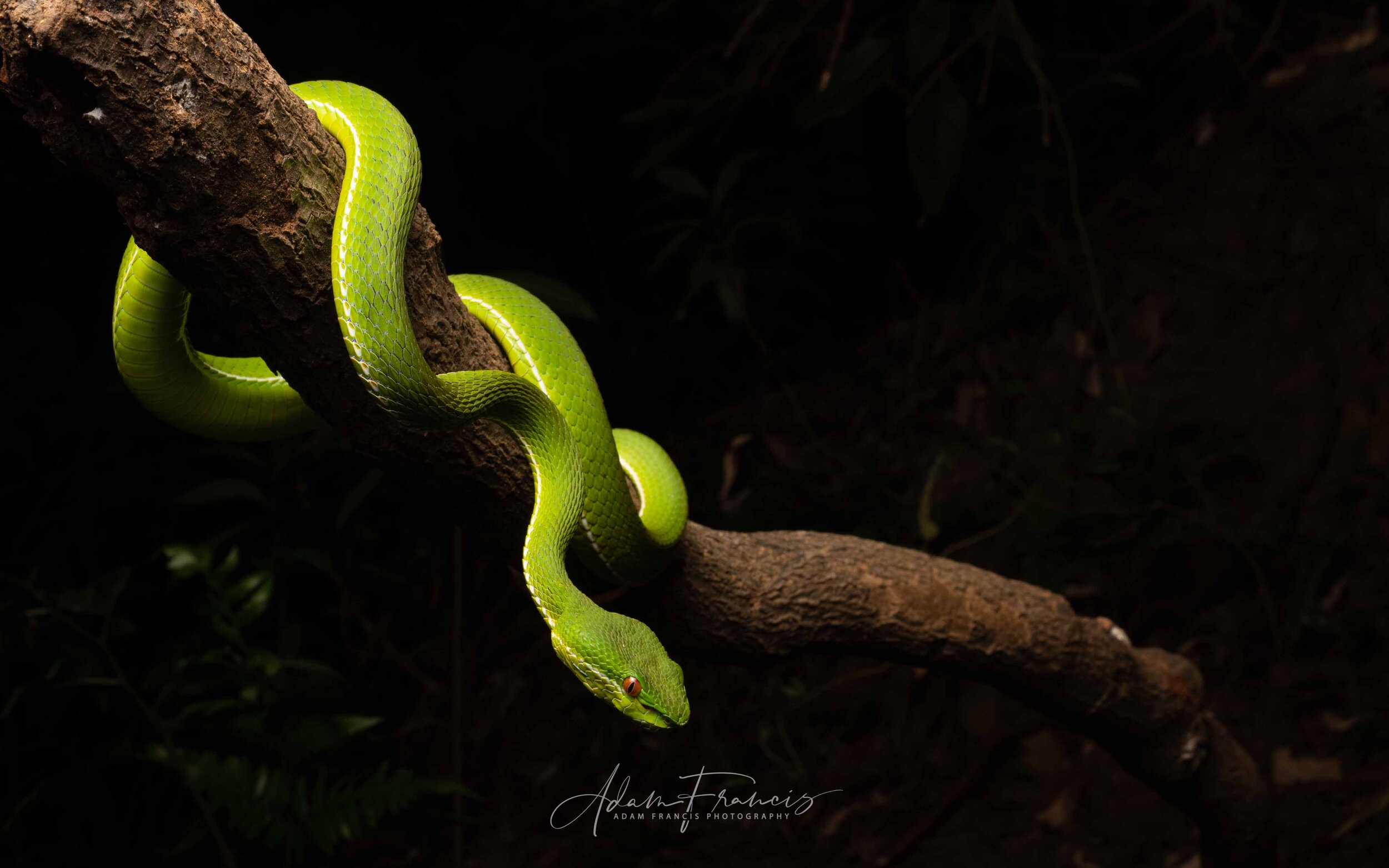
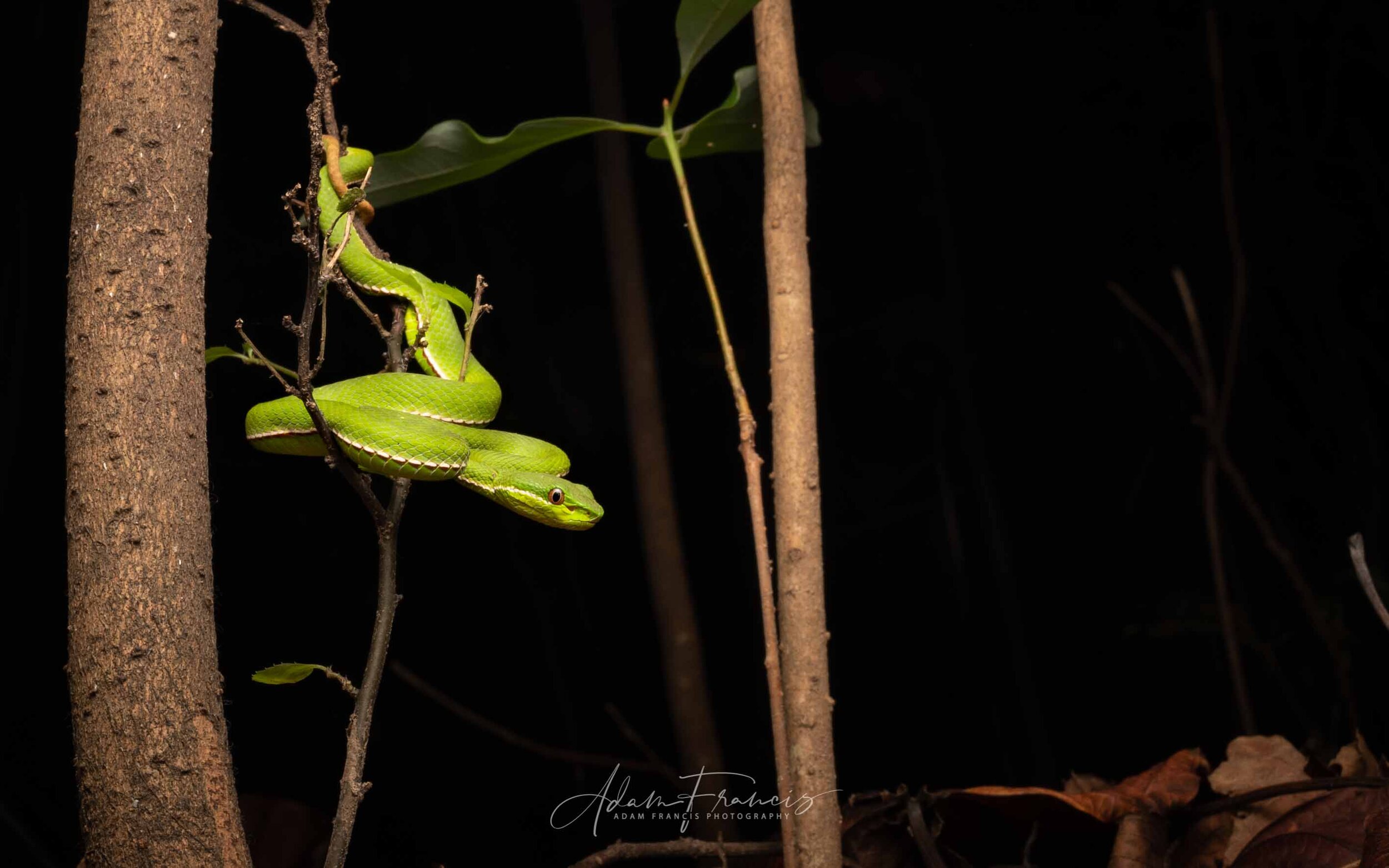
See a video of this species being found in the field here:
DESCRIPTION
Bright green with yellow belly. Distinctive white stripe above the lip running laterally down the length of the body. Both male and female have characteristically triangular shaped head with red eyes containing vertical pupils. Can have orange/brown coloration on the tail.
BEHAVIOR
Active at night and occasionally roosting in bushes during the day. The Stejnegeri’s Viper is an ambush predator that will wait in a single position ready to strike. They are a viper and have relatively long retractable fangs and will bite readily at anything that comes within range. Generally not prone to give chase but will hold their ground if they feel cornered. Not actively aggressive but will not hesitate to bite. A bite from a Stejnegeri’s Viper should be considered very serious and medical attention should be sought immediately. Although not known to be deadly serious damage can occur from a bite even if treated and complications can always arise.
HABITAT
Found all over Taiwan, generally in forested areas along open spaces like trails or water culverts where geckos and other prey can be ambushed. Previously not known to position near populated locations with artificial light, this species has been observed by the authors more and more frequently near street lamps and other man made locations.
MISTAKEN IDENTITY
NO SNAKE SHOULD EVER BE HANDLED BY ANYONE BUT EXPERTS: Often confused with the harmless Greater Green Snake. See that page HERE for comparison details. No viper should ever be approached or handled. If found observe from a safe distance. Visit the 'Practical Venomous Snake ID' section of the Snake ID page for tips on identifying some of the more common venomous species.

